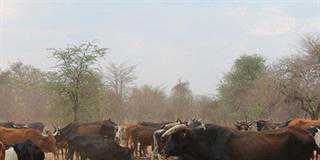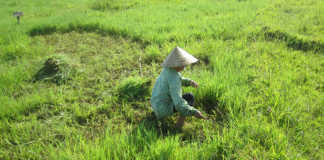Readers will know that I have a mental block when it comes to crop farming, partly due to my poor knowledge of soil types, and partly due to nature. What really puts me off crop farming is there’s no-one to negotiate with to deter that hailstorm, drought or swarm of locusts.I feel guilty when I look at that land lying fallow, and that’s why a logging depot outside Bhekuzulu got me thinking about becoming a timber grower.
But wouldn’t it be about 10 years before I could sell a single log?
All the same, I decided to investigate further, which was made easier by the fact that Sappi and Mondi, the big names in the forestry industry, have invested in schemes to promote emerging timber growers for their supply chain. My first port of call was Vusi Dladla, head of development services at NCT Forestry Cooperative, comprising emerging timber growers who have “funded their own developments, are independent, and can market the timber they produce”.
Or so says the NCT website at www.nctforest.com.Vusi’s unit was set up to add value to the co-op through the development of its black members. It addresses their concerns and ensures that members understand the operations of the business and the industry. NCT has about 1 944 shareholders, of which 33% are black.
Vusi says the process started in the 1980s to help transfer skills in all facets of forestry, including harvesting, transport and silviculture – the cultivation and management of forest trees. Black producers have supplied NCT with timber since the 1970s, when the first chipping plant in the country was built at Cato Ridge in KZN. They became full members of the co-op in 1986.
Although NCT’s black producers only control 14 000ha of the 300 000ha owned by all of NCT members, they contributed 20% of NCT’s total pulpwood sales in the 2009/10 financial year, says Vusi.So how can a rural woman from Estcourt join in the fun? “Estcourt doesn’t provide a good growing environment for the trees used to make Masonite, one of the most sought-after wood products,” says Vusi.
“But you can grow gum trees if you get the relevant water-use licence from government. They can withstand cold conditions. Since they can’t be used by any local pulp mills, NCT exports them to Japan.”Any new commercial timber planting requires a planting licence from the agriculture department. It’s an option. But perhaps for now I should be content to plant woodlots to provide building material, firewood and fencing poles, and to remain emerging.













